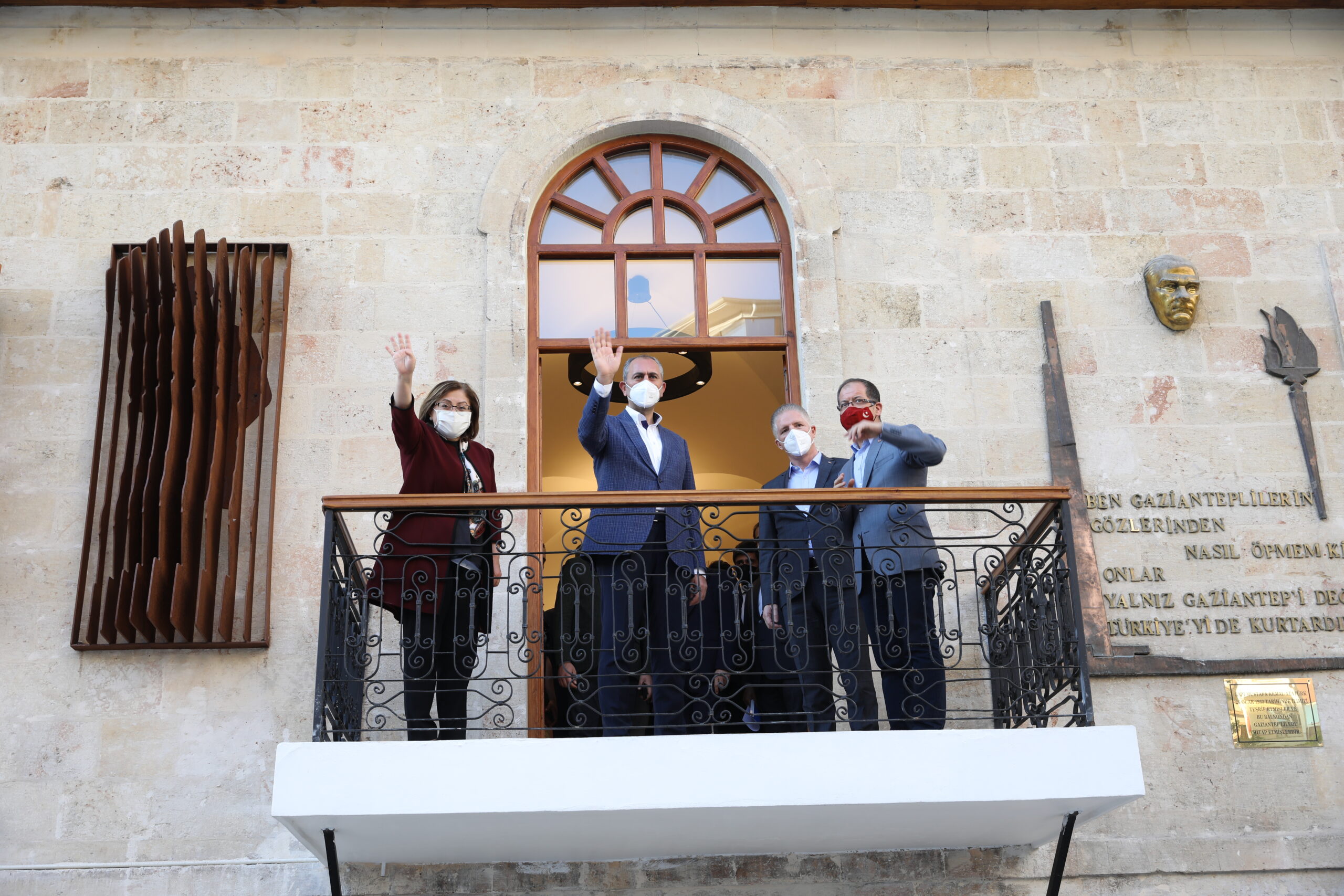"The Turkish Archeology and Cultural Heritage Institute, which will serve under the umbrella of the Turkish Archeology and Cultural Heritage Foundation, hosted the Abdulhamit Gul, the Minister of Justice, on the 3rd day of Ramadan Feast. Minister Gul stated that they will be the "follower of the Law-related works on the establishment of the Foundation".

Abdulhamit Gul, the Minister of Justice, visited the Turkish Archeology and Cultural Heritage Institute in Gaziantep. Gul, the Minister, was accompanied by Davut Gul, the Governor of Gaziantep, and by Fatma Sahin, Metropolitan Mayor of Gaziantep.
Received information about the Institute, which was launched under the partnership of the Ministry of Culture and Tourism of the Republic of Turkey and Gaziantep Metropolitan Municipality, and with the support of the European Union, the Minister Gul visited the exhibition in the Kendirli Complex, which shows the establishment, development, and activities of the Institute.
Expressing that he found the Institute's works extremely successful and impressive, Minister Gul explained that "they will follow up and support the Law-related works that are required for the establishment of the Turkish Archeology and Cultural Heritage Foundation, together with the deputies of Gaziantep".
Stating that he is "pleased and excited about the contributions to Turkish culture" of the archive that is located in the complex and is the first specialized library in the field of Turcology, Mr. Gul suggested the establishment of an outdoor library also under the umbrella of the Institute.
The delegation that paid special attention to the balcony in the Kendirli Complex, where Veteran Mustafa Kemal Ataturk called to the citizens of Gaziantep when he came to the city to spend the Ramadan Feast in 1933, made examinations in the Archeometry Laboratory that became ready for use through being completed per the recommendations of the Science Committee of the Institute and has the feature of 'site management'.
The works of the Turkish Archeology and Cultural Heritage Institute continue with the contributions of 430 cultural, artistic, and scientific people from Turkey and Europe. Among the projects that are planned to be completed soon, there are the publication of books containing scientific studies in the field of archeology and a Refereed Journal. The Institute continues its preparations for the trainings that address different groups from academicians to youth and for the Archeology Council.
The first 'Digital Archeology Archive' of Turkey will also be brought to life under the umbrella of the Institute. For the library where rare works of art will be available, 1.5 million documents of the 100-year-old State Archives have been scanned so far. In the library that will function as the Turcology Specialization Library, digital infrastructure has been prepared for accessing the libraries of archeology institutes located abroad.
AB-TR Anadolu Arkeoloji ve Kültürel Miras Enstitüsü Projesinin tüm bileşenleri tamamlanmış olup, Türk Arkeoloji ve Kültürel Miras Enstitüsü kuruluş çalışmaları, 7439 sayılı Türk Arkeoloji ve Kültürel Miras Vakfı Kanunu ile tamamlanmıştır.
Daha fazla bilgi için: takme.org
This will close in 0 seconds